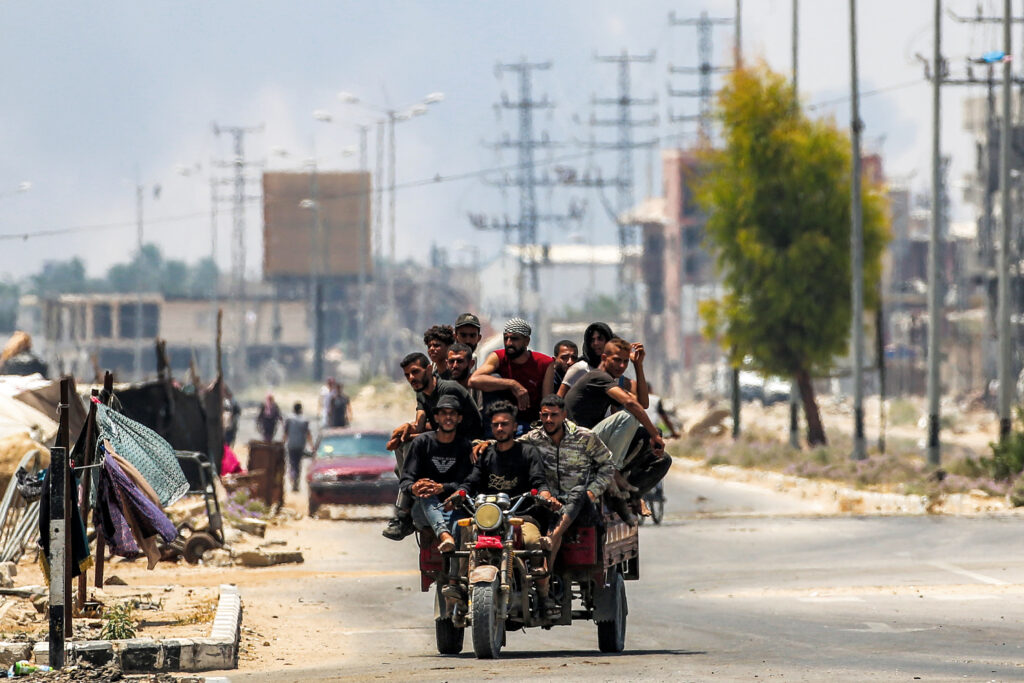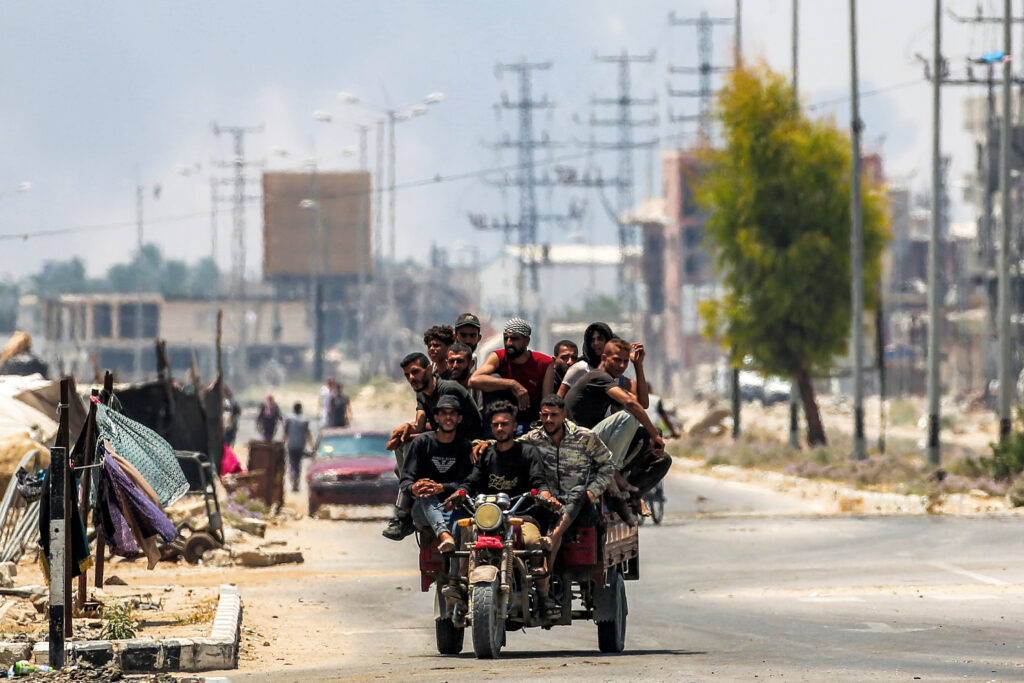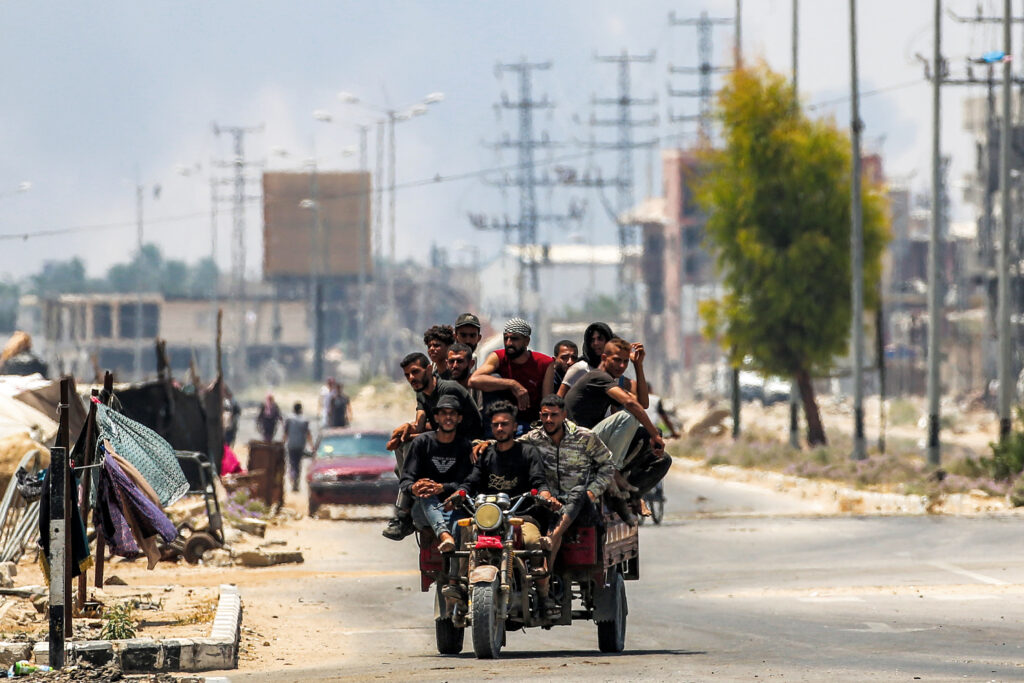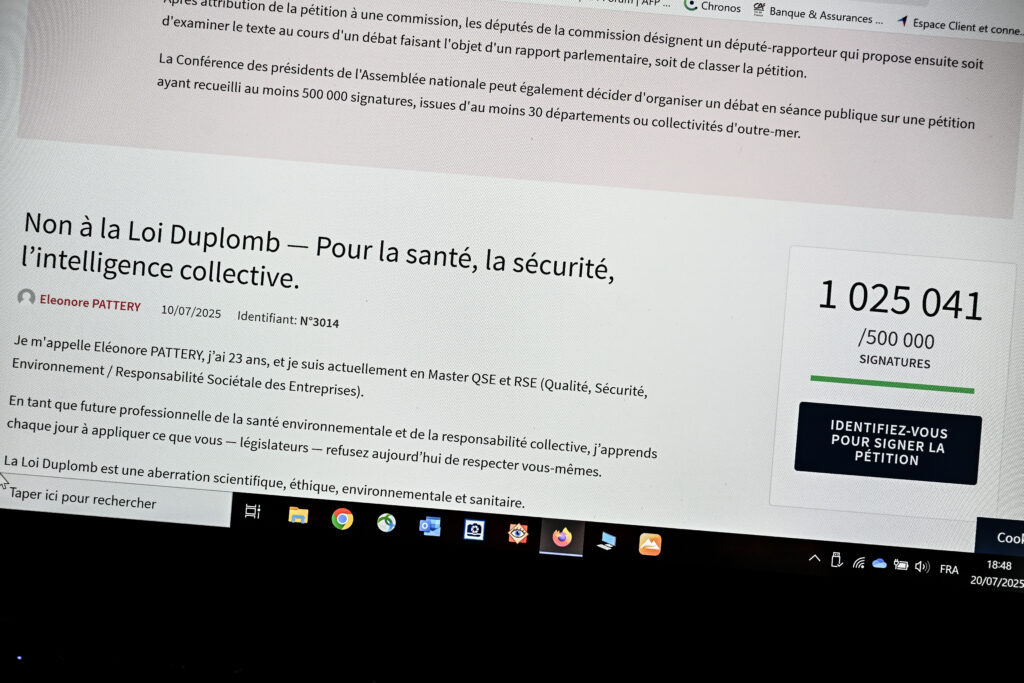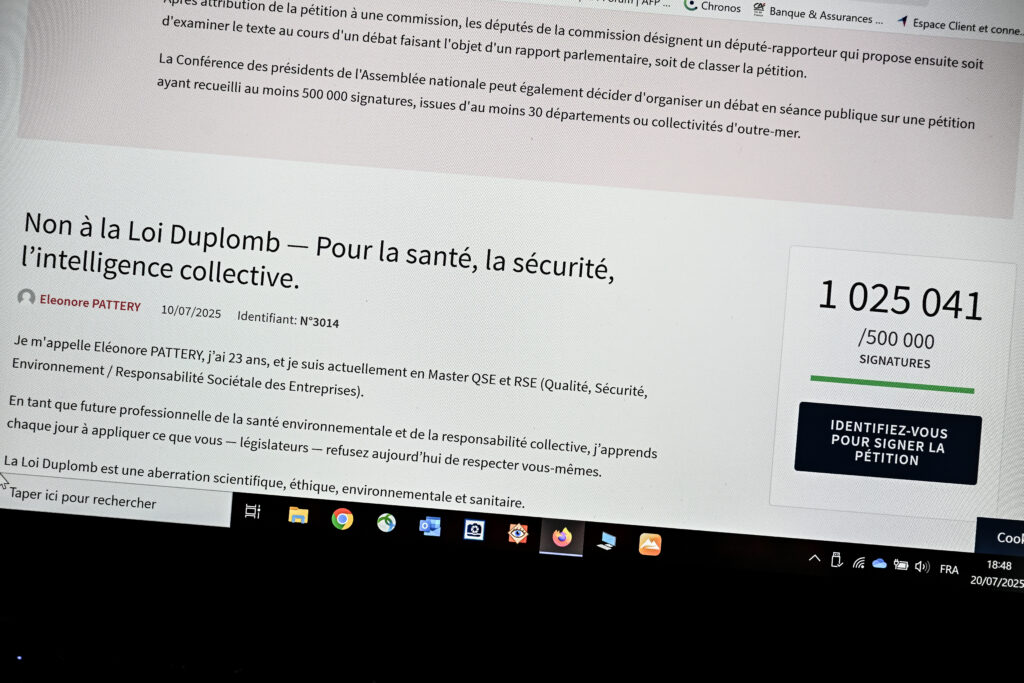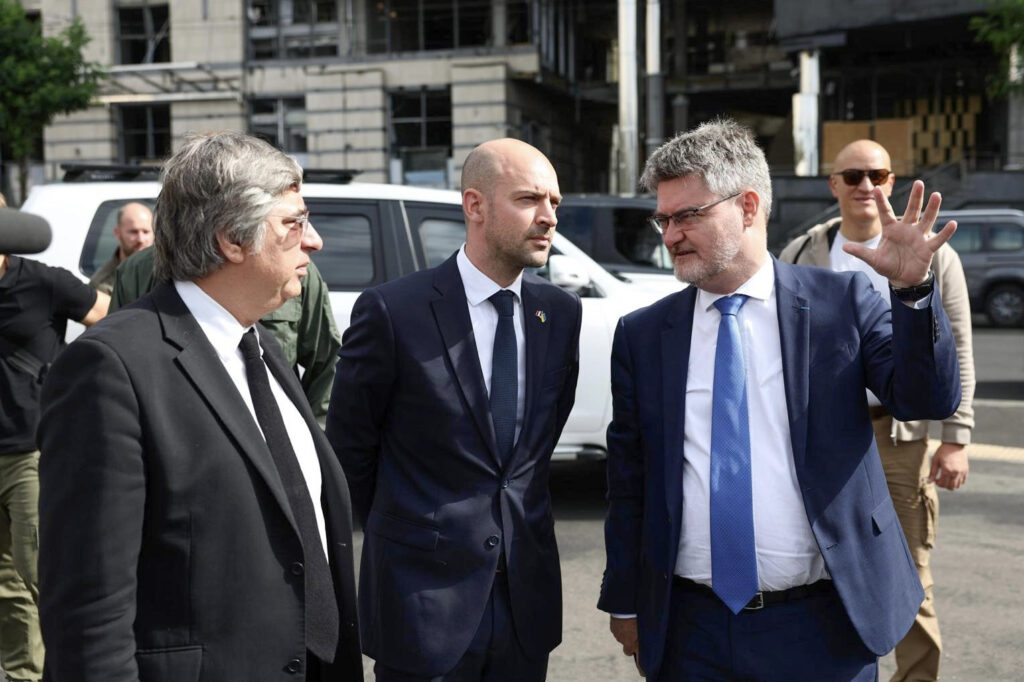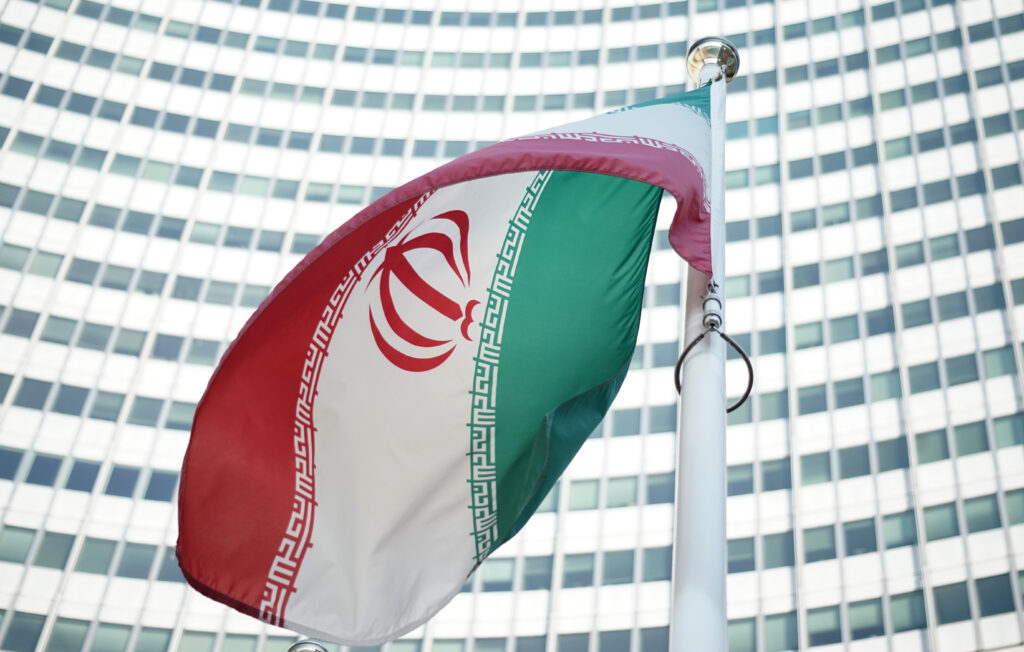Israël étend ses opérations à Gaza, appels internationaux à cesser la guerre
L’armée israélienne a lancé lundi une offensive terrestre dans le centre de la bande de Gaza, au moment où 25 pays appellent à la fin immédiate de la guerre dans le territoire palestinien assiégé et dévasté.Selon l’ONU, les quelque 2,4 millions d’habitants de Gaza sont menacés de famine après plus de 21 mois de conflit, déclenché par une attaque sans précédent du mouvement islamiste palestinien sur le sol israélien le 7 octobre 2023.”La guerre à Gaza doit cesser immédiatement”, écrivent dans un communiqué conjoint les ministres des Affaires étrangères de 25 pays, parmi lesquels figurent la France, le Royaume-Uni, le Canada et l’Australie.”La souffrance des civils à Gaza a atteint de nouveaux sommets”, estiment-ils, dénonçant “le refus du gouvernement israélien de fournir une aide humanitaire essentielle à la population”.Si l’Egypte voisine a salué l’appel des 25, le ministre israélien des Affaires étrangères Gidéon Saar a condamné cet appel, soulignant que le soutien du Hamas à ce communiqué prouvait que les signataires faisaient “fausse route”, dans un message sur X.”Dégoûtant! 25 nations mettent la pression sur Israël au lieu de le faire sur les sauvages du Hamas!”, a de son côté affirmé sur X Mike Huckabee, l’ambassadeur américain en Israël.Le secrétaire général de l’ONU Antonio Guterres est lui “atterré” par les conditions humanitaires à Gaza, a déclaré lundi son porte-parole Stéphane Dujarric.L’agence des Nations unies pour les réfugiés palestiniens (Unrwa) s’est alarmée lundi d’une malnutrition grandissante dans le territoire palestinien. “Levez le siège et laissez l’aide humanitaire entrer”, implorait-elle. – “Aucun endroit sûr” -Sur le terrain, la Défense civile de la bande de Gaza et des témoins ont fait état lundi de tirs d’artillerie sur Deir al-Balah, dans le centre de la bande de Gaza.L’armée avait indiqué plus tôt étendre ses opérations militaires dans ce secteur, sommant les habitants d’évacuer les lieux.Selon le Bureau des affaires humanitaires des Nations unies (Ocha), entre 50.000 et 80.000 personnes se trouvaient alors dans la zone. Des familles entières se sont mises en route, transportant leurs affaires à bout de bras ou sur des charrettes tirées par des ânes en direction du sud, d’après des correspondants de l’AFP sur place.”Nous avons peur que l’armée israélienne prépare une opération terrestre à Deir al-Balah et dans les camps du centre de la bande de Gaza, où s’entassent des centaines de milliers de déplacés”, déclare Abdallah Abou Slim, 48 ans.Hamdi Abou Moughsib, 50 ans, raconte à l’AFP que lui et sa famille ont fui dès l’aube vers le nord, après une nuit de bombardements intenses.”Nous avons vu des chars avancer sur plus d’un kilomètre depuis Khan Younès (sud) en direction du sud-est de Deir al-Balah (…). Il n’y a aucun endroit sûr dans la bande de Gaza”, affirme-t-il.”Il y a plusieurs blessés, mais personne ne peut accéder à la zone pour les évacuer”, a déclaré à l’AFP Mahmoud Bassal, le porte-parole de la Défense civile de Gaza.Selon lui, au moins 15 personnes ont été tuées depuis l’aube dans différents secteurs de la bande de Gaza.L’armée israélienne a annoncé lundi soir la mort d’un soldat, “tombé au combat”, dans le sud de la bande de Gaza.- “Choquées” -“Les bombardements ont lieu tout autour de notre bureau, et les véhicules militaires se trouvent à seulement 400 mètres de nos collègues et de leurs familles”, a raconté Mai Elawawda, chargée de communication à Gaza pour l’ONG médicale britannique Medical Aid for Palestinians.Sollicitée par l’AFP, l’armée israélienne n’a pas commenté.En Israël, des familles d’otages retenus dans la bande de Gaza depuis le 7 octobre 2023 se sont dites “choquées” par les informations faisant état d’une offensive de l’armée dans le secteur de Deir el-Balah, craignant pour la sécurité de leurs proches.L’attaque du 7-Octobre a entraîné du côté israélien la mort de 1.219 personnes, en majorité des civils, selon un décompte de l’AFP réalisé à partir de données officielles.Sur les 251 personnes également enlevées ce jour-là, 49 sont toujours otages à Gaza, dont 27 ont été déclarées mortes par l’armée israélienne. Israël a juré de détruire le Hamas et a lancé en représailles une offensive destructrice dans laquelle au moins 59.029 personnes, majoritairement des civils, ont été tuées, selon des données du ministère de la Santé à Gaza, jugées fiables par l’ONU.
